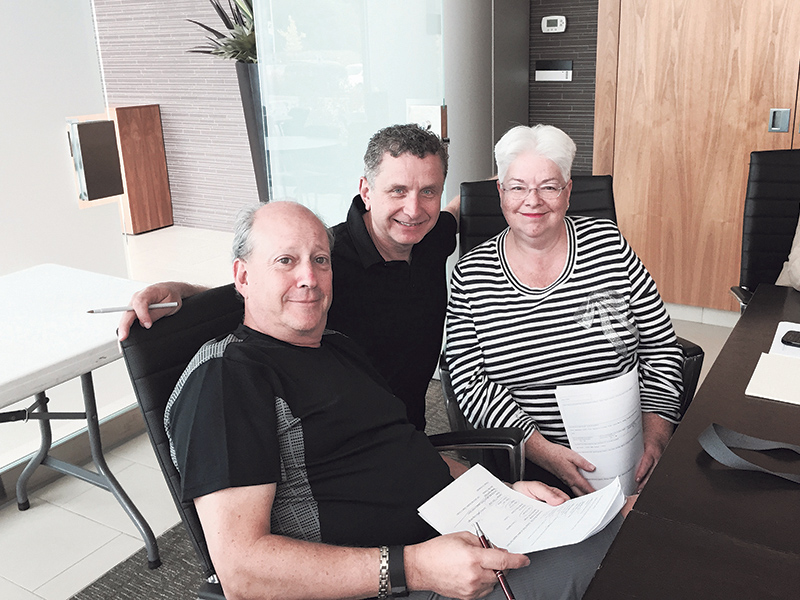London, Ont., residents Gloria Gilbert and Judy Silver want to expand the traditional understanding of the term Holocaust survivor.
The two are co-chairs of the London Jewish Federation’s London Yiskor Project, a comprehensive electronic database that tracks current and former Jewish residents of London who either survived the Holocaust themselves or have family members who did.
The project was first launched in the early 1980s by Lois Weiner Lowe, a Montreal woman who moved to London with her husband Danny Lowe, but passed away after a long illness in 1985, as a way to link London Jews to relatives murdered in the Shoah.
After Danny Lowe died unexpectedly in 1990, the project lay dormant for a number of years before Gilbert and Silver revived it in 2013.
In addition to modernizing and streamlining the database, and posting it online, they’ve also broadened their criteria to include families beyond those considered to be “direct survivor families.”
This means that any Londoner, including anyone born in the southwestern Ontario city who has since moved elsewhere, with any familial tie to the Shoah – even if the person who survived is a more distant family member and not a parent or grandparent – is eligible to be put into the database.
The names entered are then sent to Yad Vashem for “a permanent record in Israel,” Gilbert said.
READ: TRACING SURVIVORS AND VICTIMS OF THE HOLOCAUST
“We tend to think of survivor [families] as people who were in the Holocaust or whose parents were in the Holocaust… but many people have aunts, uncles, cousins, etc., who they might have had no recollection of, but who survived,” Gilbert said.
The idea behind the project, and behind the enlarged criteria, is “to suggest that the Holocaust is not just something that happened to someone else… to make that linkage a little closer, so that young people in London and people through the generations don’t dismiss it as something that didn’t happen to them,” Gilbert explained.
All participants are sent a two-page document to fill out that asks for details about their immediate family, their current or former ties to London and all known information about the relative who survived the Holocaust.
Gilbert said they are actively looking for more people to contribute to the database and that the findings will eventually be made available through the website of the London Jewish Federation.
At this point, several hundred names have been added to the revamped database by about 100 families, but Gilbert said the project is “far from complete.”
She noted that while a number of Holocaust survivors moved to London in the 1950s and ’60s and brought up their children in the city, “the next generation has largely moved to Toronto and other places.”
The Yiskor Project is an important educational tool for Jewish families in London, and primarily for children, Gilbert stressed, adding that it’s a way of ensuring that young Jews from the community, which currently numbers about 3,000 Jews (or 450 families), retain a sense of personal connection to the atrocities of the Shoah.
“We’re trying to show that this is something that affects all of us [in the Jewish community]. For many, if it wasn’t for that one aunt or whoever that escaped [by coming to Canada], the family wouldn’t have continued on,” Gilbert said.
Gilbert, who moved to London from Montreal with her husband in 1972, said her own parents, who immigrated to Canada from Romania and Russia, were not directly involved in the Holocaust, however, “from a Jewish standpoint, I think we’re all survivors… We’re lucky to have had parents [or other relatives] come over from Europe at a certain time… We’re lucky to be where we are, and we must maintain that link to the Holocaust.”
To get involved, contact [email protected]
